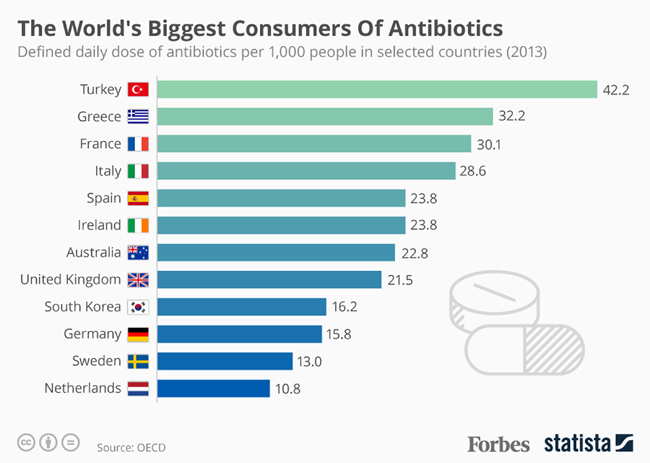Global use of antibiotics has increased steadily in recent years, driven by rising demand across low and middle income countries.
However, they should only be prescribed when there is an evidence-based need, with overuse resulting in the creation of deadly strains of bacteria resistant to treatment.
An OECD report has revealed the countries that most frequently prescribe antibiotics in primary care.

Turkey and Greece lead the way with a defined daily dose of 42.2 and 32.2 per 1,000 people respectively, far higher than the OECD average. The Netherlands is at the opposite end of the scale, reporting a daily dose of just 10.8 per 1,000 people. The massive variation in dosage may be explained by differences in regulation, guidelines and incentives. Demand might also be influenced by cultural differences in attitudes and expectations towards treating illnesses.
Indiscriminate use of antibiotics poses serious threat








































